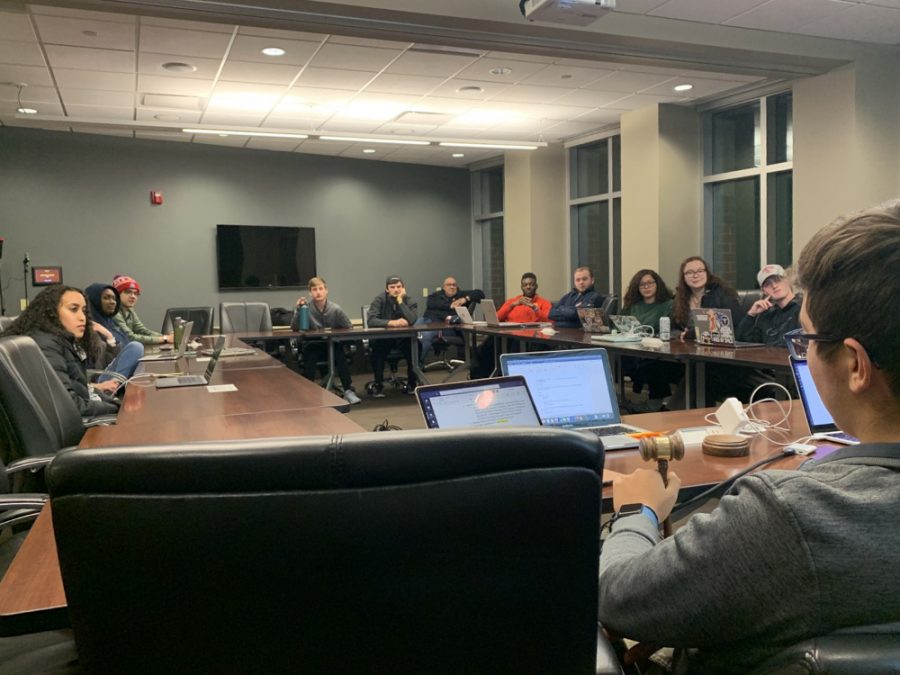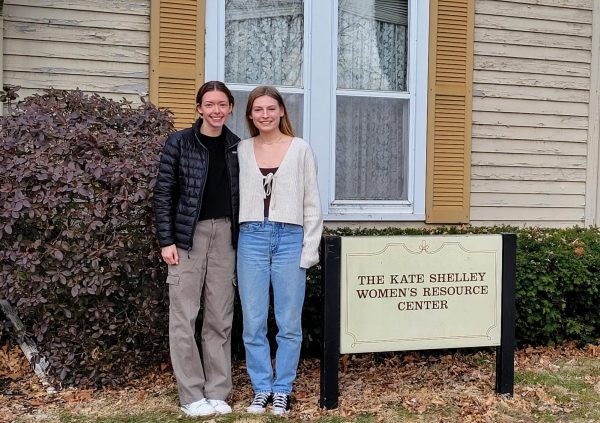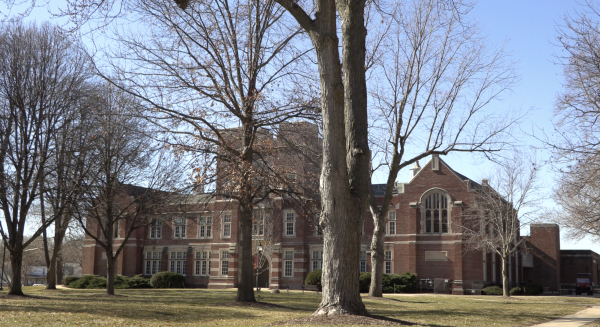Students speak out after the administration’s response to solar panel proposal
February 12, 2020
Simpson College’s Student Government Association drafted a resolution on Jan. 29, 2020 in response to an administrative halt on solar panel plans.
The Sustainability Committee at Simpson has been working on a project to implement solar panels on top of Kent Campus Center. The project was recently approved by the Student Government Association (SGA).
After being approved by SGA, the project was sent to the school’s administration in hopes of being presented at the Board of Trustees meeting. The administration did not immediately approve the project which has frustrated Simpson students.
Senior class president and member of both the sustainability club and committee Molly Fisher, was especially unhappy about the administration’s response.
“Basically, they said higher education moves slowly and they didn’t see it would be favorable at this time to present to the board of trustees,” Fisher said. “They were not in favor of presenting the proposal to the board of trustees currently without saying no directly.”
Fisher was the main writer of the resolution drafted in response to administration. Fisher said the main goal of the resolution was to get a definitive answer about the solar panels from administration as she and other students and faculty members were not satisfied with the answers they were given.
History professor and campus sustainability director Daryl Sasser was also upset with the response from the administration and praised both Fisher and SGA for the resolution.
“I understand why SGA and Molly, in particular, wanted to do this because ‘colleges move slowly’ is not a very good response to ‘let’s put solar panels up.’ I don’t understand the substantial reasons why they wouldn’t say, yes let’s do that right now,” Sasser said.
The resolution also claimed the college “does not have a positive history” when it comes to student-led sustainable projects, and that the college is not investing in capital improvement funding.
Interim president Bob Lane was not expecting the resolution.
“I was a little surprised when the resolution came out because, in my eyes, it seemed pretty negative towards administration,” Lane said. “I didn’t take it personally, as I thought I made it as clear as I could, this is good work, that’s why I requested a copy of it to pass on to our CFO to combine with the energy audit that had been done and to make some of that information known.”
Lane had presented the solar panel proposal to Simpson’s chief financial officer with the intent to bring it to the Board of Trustees meeting on Feb. 7. Lane asked for the proposal because he believed it would make a good addition to the college’s recent energy audit.
Lane, along with vice president for student development and planning Heidi Levine, sat down with members of SGA on Feb. 5 to discuss the resolution.
“One of the statements in that resolution is that the college refused to pay for a list of things like hydration stations and security lighting,” Lane said. “We pointed out [to the students] how much the college had invested in a number of those projects in the last three or four years which was a significant amount of money, so the college hasn’t refused, at least in our eyes, anything.”
Both the energy audit and the solar panel proposal were presented at the meeting according to Lane. He believes the general consensus of the board is that they’re in support of the solar panels, but it’s part of a bigger project with energy efficiency across campus.
Despite not getting a solid ‘yes’ from the administration, Fisher believes the resolution will ultimately have a positive impact.
“The resolution makes the administration continue to talk about this which is ultimately what the goal is,” Fisher said. “We don’t want the solar panel idea to just die out and not happen, so I think the resolution did what it was intended to do.”
Sasser is very pleased with the efforts by both Fisher and SGA to get administrations attention.
“Good for SGA and specifically for Molly for telling the administration exactly what they want,” Sasser said. “I think this is a perfect example of engaged citizenship the curriculum model that the college has created.”
The main reason the administration couldn’t say ‘yes’ to the project immediately was because they needed the Board of Trustees’ approval.
“Typically, higher education moves slowly,” Lane said. “That’s not a reason this can’t or won’t happen, it might not happen as quickly as some people would want it to. Mostly that happens because your Board of Trustees at any college has the judiciary responsibility, they technically own the college, so if we’re going to make any significant changes to a campus structure or facility it has to be approved by the board. That’s what I mean when I said higher education moves slowly, they’re here just three times a year.”
The next step is for the administration and the Sustainability Committee to hopefully work together for a common goal. This has been expressed by the board, Bob Lane and students.
“I think that there’s an opportunity here for us to work with the administration,” said junior Amron Born, co-president of sustainability club and member of the Sustainability Committee. “We want the same thing, they’ve been talking about wanting to be more energy-efficient and that is something we’re interested in too, I just think it’s something we need to work with them to make that happen.”
At this point in time, the discussion about solar panels at Simpson College is not over. Students, Board of trustees, administration and SGA have expressed interest in the use of solar panels as a step to a more sustainable campus.
















